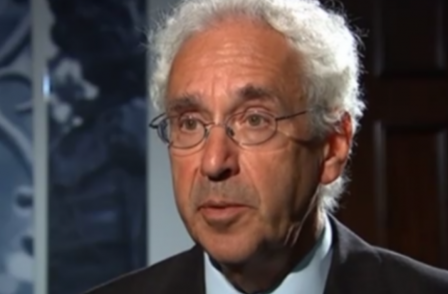
Chairman of the Independent Press Standards Organisation Sir Alan Moses said subterfuge should only be used as a "last resort" as a means of discovering evidence which the newspaper already suspected existed.
He was speaking today in the way of a Sunday Mirror story which revealed married government minister Brooks Newmark had sent explicit photos of himself to a freelance journalist posing on Twitter as a "twentysomething Tory PR girl".
The "honey trap" operation involved a fictitious party activist called "Sophie Wittam" who flirted with MPs via social media.
Fellow Conservative MP Mark Pritchard, who was also targeted, has made a complaint to IPSO, and said he would also contact Scotland Yard over alleged entrapment.
Speaking at the Conservative Party Conference, Moses set out how the complaint would be dealt with by IPSO and indicated it "looks to me likely" that the probe will examine the story about Newmark, whether or not he complains himself, as well as Pritchard's complaint .
He said: "The complaint staff will look at it and see whether it raises a prima facie case. I don't think that will be a very difficult decision."
He added: "It will then be sent to the Mirror. The maximum time they have got to deal with it is 28 days, but under the rules – and we will interpret that strongly – it may not take that long.
"And we will certainly be discussing with the complainant the sort of questions that, in order to justify what happened, the Mirror will have to answer."
Sir Alan continued: "They will have to justify what they did, having regard to the fact that the editors' code is absolutely clear that this sort of method is only permissible in circumstances where no other means of discovering evidence of that which is already suspected exists. So, to put it loosely, last resort.
"So it goes to the newspaper, they must have a fair opportunity to respond. I can't believe in this case – again I don't want to prejudge it, that it should take long.
"After all, they ought to have their justification already in place because one of the important things about the code and highest professional standards is that newspapers think beforehand about whether they should be doing what they set about doing.
"It's no excuse to say 'it's just a third party or a free agent', they are equally responsible as if it was an employee.
"So one would expect them already to know exactly how they justify what they did in that case. So it shouldn't take them very long to be clear, open and transparent about how they justify it in the public interest.
"It's simply no answer to go public and say 'we stand by our story', when accuracy is not the accusation after all. It is breach of privacy and the use of subterfuge in circumstances where it is forbidden by the code."
Moses added that Ipso would watch the process "all the way".
He said: "It's a matter of urgent public concern and Ipso will watch it all the way. If the newspaper denies that it acted, and continues to deny, that it acted in breach of the code then Ipso will adjudicate, make a decision, set out its reasons, give the newspaper an opportunity to say how it proposes to make a redress."
He added: "IPSO has the right, under the rules, to make a decision as to the terms in which the redress and correction and apology is made in the newspaper, and as to where that should appear."
Moses said the newspaper would only face a fine if a standards investigation was launched.
"The power to fine only occurs where you launch and conduct a standards investigation," he said.
"But if there was a deliberate breach of the code then … one can well see that you wouldn't need a very complicated investigation of the standards just to say 'here was a cynical, deliberate breach' – and I speak hypothetically – 'of the code, what is your answer to it because if you have got no answer then we regard that as a breach of standards that merits a fine'."
The Sunday Mirror has insisted the story was in the public interest; however, it has apologised to a woman whose photo was used as part of the operation without her knowledge.
Swedish model Malin Sahlen said she was "shocked" that her picture had been used to attract MPs.
Lloyd Embley, editor in chief of the Daily Mirror and Sunday Mirror, said: "The Sunday Mirror stands by its story relating to Brooks Newmark.
"Subterfuge was used in this investigation – and we have been very clear about that from the start.
"We strongly believe there was a clear public interest because of Mr Newmark's roles as Minister for Civil Society and co-founder of Women2Win, an organisation aimed at attracting more Conservative women to Parliament.
"The investigation was carried out before the Sunday Mirror's involvement. We thought that pictures used by the investigation were posed by models but we now know that some real pictures were used.
"At no point has the Sunday Mirror published any of these images but we would like to apologise to the women involved for their use in the investigation.
"We have already spoken to one of them who would like to tell us her side of the story. This will be appearing in this week's Sunday Mirror."
Email pged@pressgazette.co.uk to point out mistakes, provide story tips or send in a letter for publication on our "Letters Page" blog

